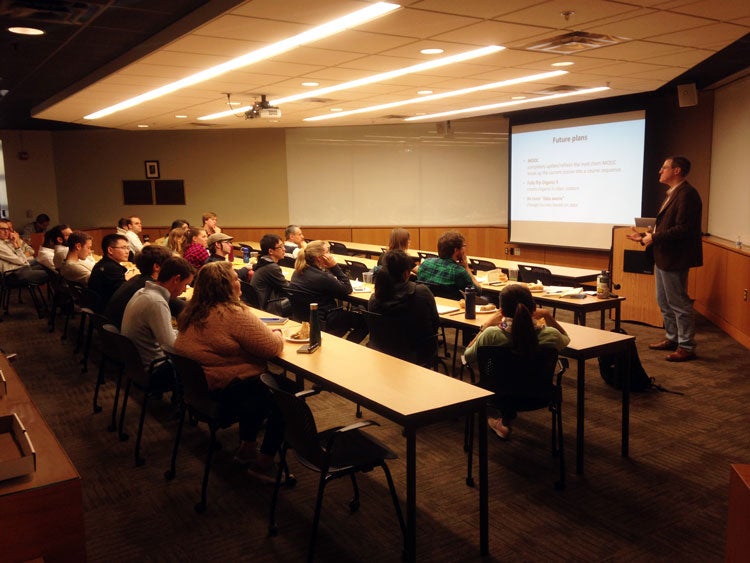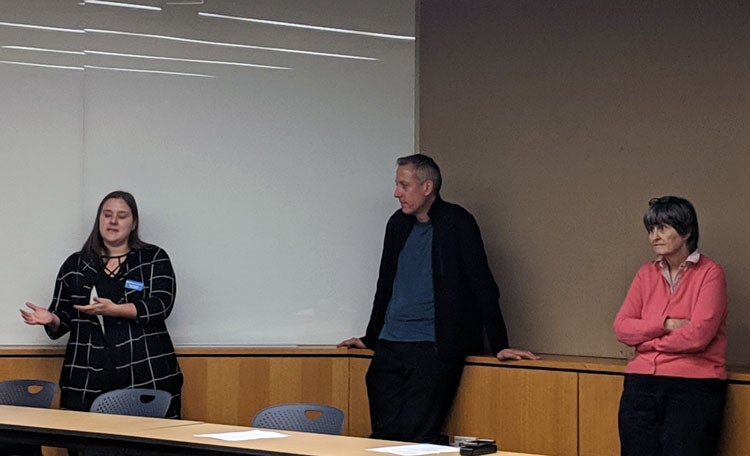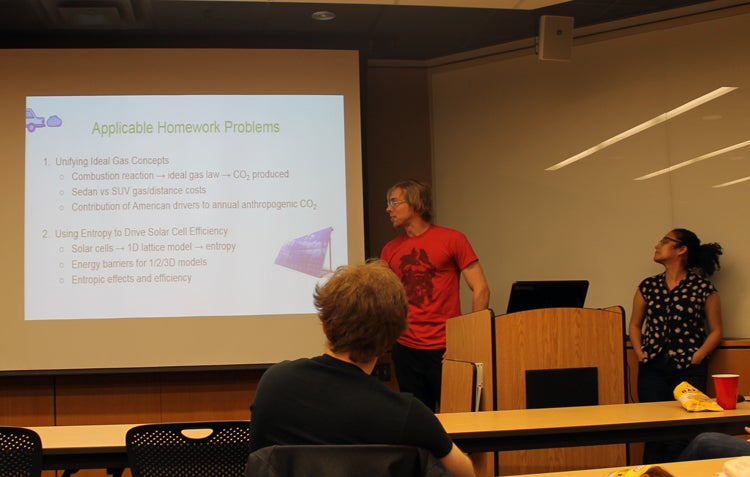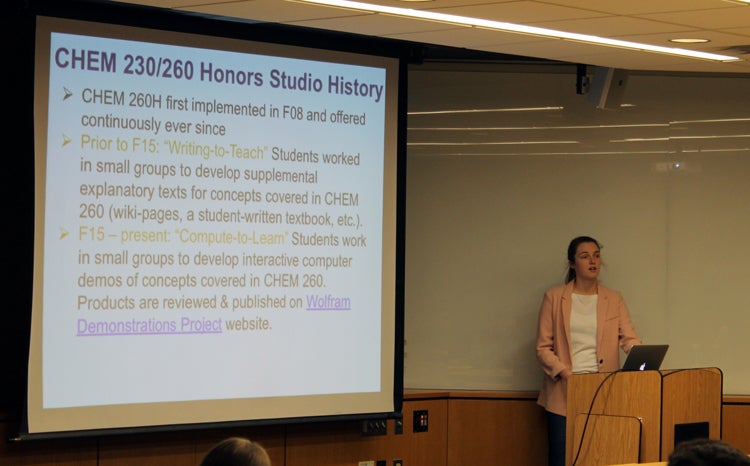
October 19, 2018
Seminar: How teaching online has changed my classroom
Host: Dan Nasrallah
Prof. Erland Stevens is a Full Professor at Davidson College, a relatively small (2,000 student) liberal arts college in North Carolina. Originally from Kentucky, he began his chemistry education at Duke University in NC with a B.S. in Chemistry.
For Grad School, he came to U-M and worked with Prof. Will Pearson. During his time at Michigan, Erland taught as a GSI with professors such as Prof. Brian Coppola. After receiving his Ph.D., Erland continued his studies with a post-doctoral position at Scripps Research Institute in La Jolla, CA with Barry Sharpless.
For the last 20 years, Erland has been a professor at Davidson. During his time at Davidson, Erland has taught a number of classes including organic chemistry I/II, bioorganic chemistry, and medicinal chemistry. More recently, he had the opportunity to modify his medicinal chemistry class to be offered as an online course through EdX. EdX is an online learning destination and MOOC (massive open online course) provider that a number of universities around the country contribute to.
The course was 7 weeks long, included 49 lessons comprised of 6-10 minute videos, and saw an enrolment of 10,000 participants from all over the world. After this experience, Erland wondered if this type of online experience could be incorporated into a classroom. This took the form of a flipped classroom for Erland’s organic I course. In this course, the students were assigned videos to watch before class and then in class they were randomly assign into groups to work on problems and examples including discussions of the answers.
This model pushes content coverage outside of class and focuses on problem solving and discussion in class. It also increases student-teacher interaction. Prof. Stevens is still collecting data on the outcomes of this style of teaching but enjoys the increased participation from students in class.









